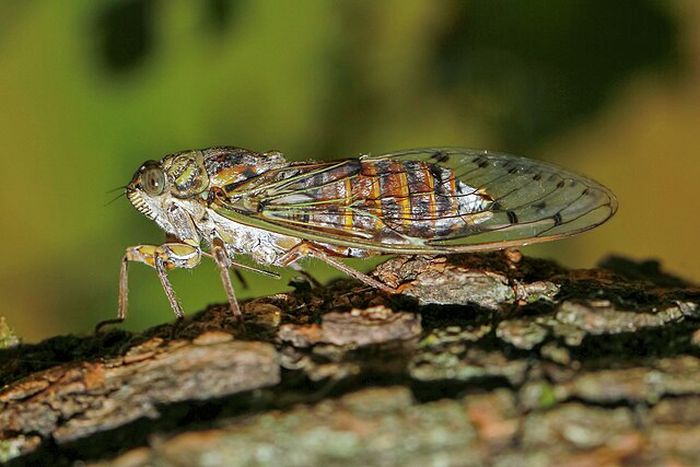Research Round-Up: Week 6
Ananya Vijay reports on the latest scientific discoveries in Cambridge from the past week
Algae, Biomimicry and Colour: Harnessing Optical Properties for Renewable Energy

The requirement to reduce our reliance on fossil fuels is unequivocal. Biomimicry is often synonymous with sustainability and as a result, researchers at the University of Cambridge investigated the photosynthetic processes of species in the marine world as part of the Bio-inspired and Bionic Materials for Enhanced Photosynthesis (BEEP) project.
The vivid colours of materials such as butterfly wings and peacock feathers are not caused by the presence of pigments - instead, their colour is obtained from the intricacies of their internal structure. When light is incident on these materials, specific frequencies of light are reflected by nanostructures on the surface, leading to the sensation of colour.
“The study of marine life on the micro-scale could impact the sustainability of our world on the macro-scale.”
Researchers involved in the BEEP project studied marine algal species with these special nanostructures, which transmit specific wavelengths of light and undergo structural changes to allow light to pass into the cell. While the specific function of these structures is still unknown, scientists speculate that they could enhance energy harvesting potential. With further understanding, the scope for designing new materials for bionic systems and bio-photoreactors is boundless.
A prototype bio-photoreactor was then developed, consisting of a bio-compatible hydrogel encouraging the growth of structurally-coloured bacteria and microalgae. The benefits of the interplay between these organisms are twofold - both the volume of biomass and microalgal growth are increased, which could have positive implications for alternative, more sustainable energy production, namely the biofuel industry.
Maria Murace, a BEEP PhD candidate at Cambridge states that a comprehensive understanding of the structures leading to colour perception can also lead to developing “green and sustainable alternatives” to “conventional paints and toxic dyes” used in industry. In conclusion, the study of marine life on the micro-scale could have a resounding impact on the sustainability of our world on the macro-scale.
Dawn, Drugs and Digital Twins; Supercomputers for Sustainable Solutions
“Some of the difficulties of “bottling a star” will be mitigated by using AI”
The most powerful supercomputer in the UK, “Dawn”, has been established in Cambridge. The result of the collaboration between the Cambridge Open Zettascale Lab, tech companies such as Intel, the UK Atomic Energy Authority (UKAEA) and UK Research & Innovation, this supercomputer is being employed to create solutions in areas such as clean energy and personalised medicine.
Clean Energy:
If hydrogen fusion in the Sun can be emulated on the Earth, this (in theory) would provide a near-infinite supply of clean energy. As a result, scientists are employing Dawn to design a fusion energy power plant. Utilising data gathered over the next twenty years, Dawn will be used to create a ‘digital twin’ to model hydrogen fusion. Dr Rob Akers, Director of Computing Programmes at UKAEA, argues that some of the difficulties of “bottling a star” will be mitigated by using AI and supercomputing. Perhaps the existence of a fusion power plant is closer than common perception.
Personalised Medicine:
The notion of modelling “digital twins” and simulations is also explored in the context of medicine, pertaining to humans this time. By creating a virtual clone of a person, incorporating the DNA, organs and cells, scientists believe that on a short time scale, drugs can be tested for compatibility with the body. Projecting further, the impact on long-term health by a change in lifestyle could also be investigated. Concurrently with the development of “digital twins” for humans comes the non-negligible issue of ethics, which may also impede progress in this field. However, the benefits of utilising supercomputers for medical applications are undisputed, as Professor Coveney, Director of the Centre for Computational Science at University College London argues that Dawn could also be used to speed up the process of evaluating candidate drugs for diseases such as Covid-19.
 News / Candidates clash over Chancellorship25 April 2025
News / Candidates clash over Chancellorship25 April 2025 Interviews / Dr Ally Louks on going viral for all the wrong reasons25 April 2025
Interviews / Dr Ally Louks on going viral for all the wrong reasons25 April 2025 Music / The pipes are calling: the life of a Cambridge Organ Scholar25 April 2025
Music / The pipes are calling: the life of a Cambridge Organ Scholar25 April 2025 News / Cambridge professor paid over $1 million for FBI intel since 199125 April 2025
News / Cambridge professor paid over $1 million for FBI intel since 199125 April 2025 Arts / Plays and playing truant: Stephen Fry’s Cambridge25 April 2025
Arts / Plays and playing truant: Stephen Fry’s Cambridge25 April 2025






